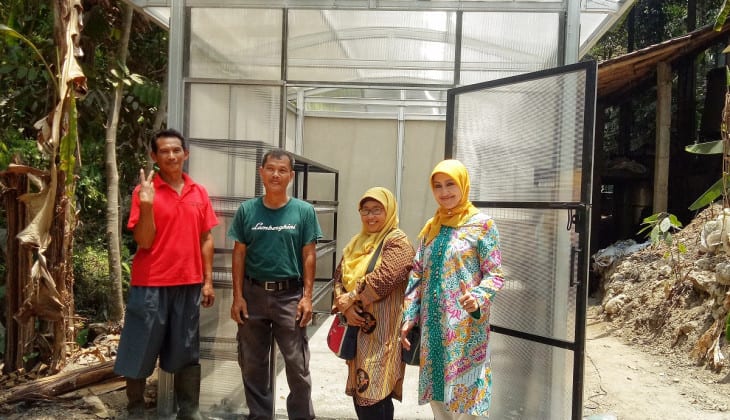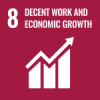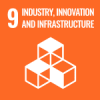
Researcher from the Department of Chemistry UGM, Prof. Dra Wega Trisunaryanti MS., M.Eng., Ph.D., found a solution to the problem of drying patchouli leaves during the rainy season in Gerbosari village, Samigaluh district, Kulon Progo regency.
The patchouli essential oil craftsmen admitted that they found it difficult to get enough patchouli raw materials when the rainy season began. Meanwhile, the demand for patchouli oil is quite high and constant. Production of essential oils in the rainy season is also dominated by clove oil.
The district has been named by the government as Yogyakarta’s Center of Essential Oils. The area produced as much as 2 – 2.5 tons of wet leaves in one harvest. Currently, however, the local people of Gerbosari dry the leaves of patchouli under the sun. Therefore, essential oil makers in the village found it difficult to meet the high demands of patchouli raw material during the rainy season. In this season the essential oil production is hence dominated by clove essential oils.
Bambang who chairs a group of essential oils makers said essential oils from Samigaluh were wanted by buyers. “The main problem of the farmers here is the reduced amount of patchouli leaves during the rainy season, which impacts on the essential oil production,” he said.
Other problems are the distillation machine which is used alternatingly for clove oils, hence the tool must be cleaned up continuously. The patchouli oils will also get contaminated by the clove oils, which decreases the quality.
“We develop patchouli leaf drying technology to improve the production of the essential oils,” said Prof. Wega Trisunaryanti. Assisted by colleagues, Prof. Karna Wijaya, M.Eng., Chemistry lecturer, and Dr. Chotimah, Physics lecturer, they devised a technology to solve the problem. The implementation of this program was also assisted by two students Satriyo and Widi and the workshop of UGM Department of Physics. The project was funded by Ministry of Research, Technology and Higher Education.
“The principle of the drying technology is by using the remaining heat of the fuel for the distillation of both patchouli and clove oils. It is channeled through a pipe to a dryer house. The hot dry air will heat the air in the dryer house which has been filled with over 1 ton of patchouli leaves,” said Chotimah.
The implementation of this activity includes the preparation phase, namely the survey of partner conditions and the design of drying technology, followed by the implementation phase, namely creating the technology package, and then the experimental and finalization stages.
Karna Wijaya added the technology was expected to boost the MSMEs in producing patchouli essential oils. “Besides, we will initiate Academic-Business-Government networks that orientates towards community empowerment. Hopefully, this will enhance our vision and mission in supporting the achievement of the Sustainable Development Goals (SDGs), particularly goal no. 8 which is Decent Work and Economic Growth, and goal no. 9 which is Infrastructure, Industry and Innovation,” he concluded.



